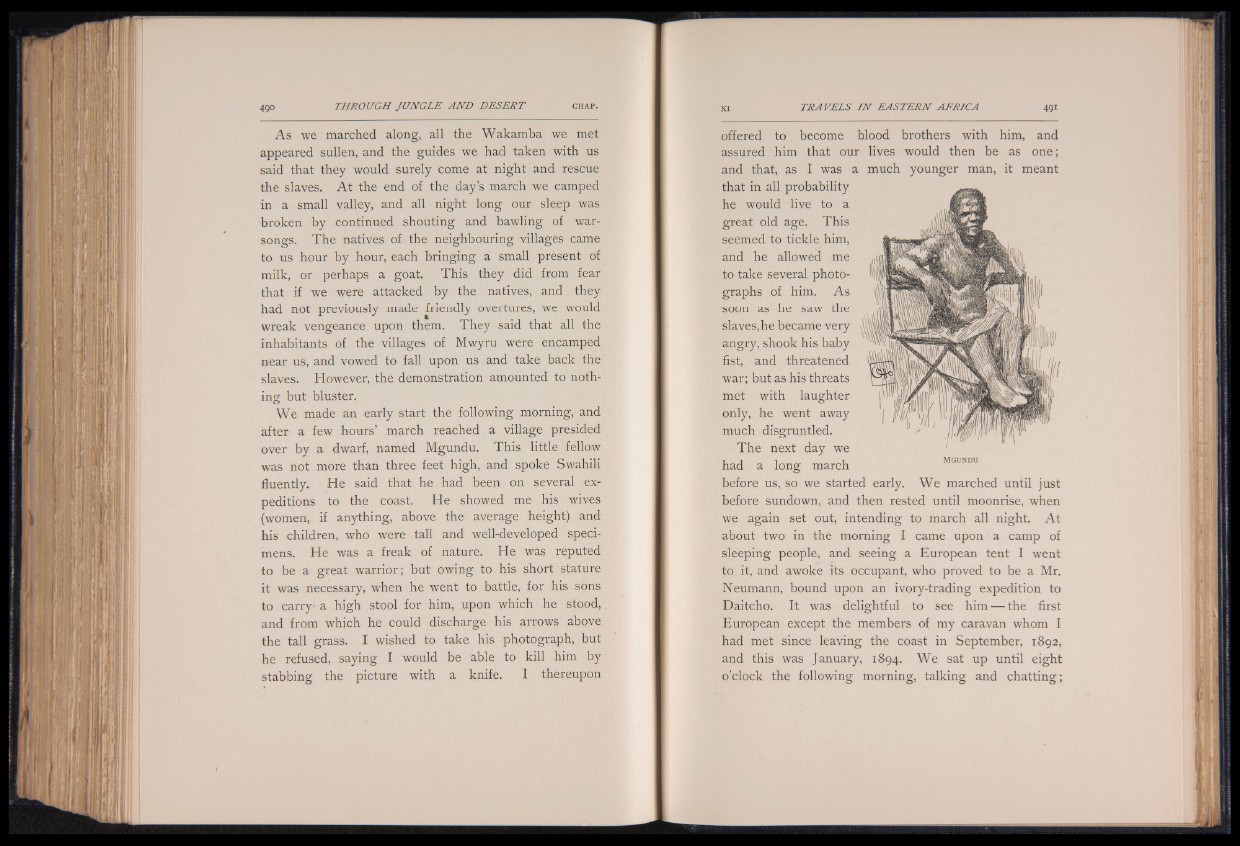
As we marched along, all the Wakamba we met
appeared sullen, and the guides we had taken with us
said that they would surely come at night and rescue
the slaves. A t the end of the day’s march we camped
in a small valley, and all night long our sleep was
broken by continued shouting and bawling of war-
songs. The natives of the neighbouring villages came
to us hour by hour, each bringing a small présent of
milk, or perhaps a goat. This they did from fear
that if we were attacked by the natives, and they
had not previously made friendly overtures, we would
wreak vengeance upon them. They said that all the
inhabitants of the villages of Mwyru were encamped
near us, and vowed to fall upon us and take back the
slaves. However, the demonstration amounted to nothing
but bluster.
We made an early start the following morning, and
after a few hours’ march reached a village presided
over by a dwarf, named Mgundu. This little fellow
was not more than three feet high, and spoke Swahili
fluently. He said that he had been on several expeditions
to the coast. He showed me his wives
(women, if anything, above the average height) and
his children, who were tall and well-developed specimens.
He was a freak of nature. He was reputed
to be a great warrior; but owing to his short stature
it was necessary, when he went to battle, for his sons
to carry a high stool for him, upon which he stood,
and from which he could discharge his arrows above
the tall grass. I wished to take his photograph, but
he refused, saying I would be able to kill him by
stabbing the picture with a knife. I thereupon
offered to become blood brothers with him, and
assured him that our lives would then be as one;
and that, as I was a much younger man, it meant
that in all probability
he would live to a
great old age. This
seemed to tickle him,
and he allowed me
to take several photographs
of him. As
soon as he saw the
slaves, he became very
angry, shook his baby
fist, and threatened
war; but as his threats
met with laughter
only, he went away
much disgruntled.
The next day we
t i t 1 M g u n d u had a long march
before us, so we started early. We marched until just
before sundown, and then rested until moonrise, when
we again set out, intending to march all night. A t
about two in the morning I came upon a camp of
sleeping people, and seeing a European tent I went
to it, and awoke its occupant, who proved to be a Mr.
Neumann, bound upon an ivory-trading expedition to
Daitcho. It was delightful to see him — the first
European except the members of my caravan whom I
had met since leaving the coast in September, 1892,
and this was January, 1894. We sat up until eight
o’clock the following morning, talking and chatting;